It took approximately six months to restore the apartment of Kryvyi Rih journalist and communications officer Maksym Minyushkin after it was damaged by an enemy missile strike. In June 2024, the house where he lived with his family was severely impacted by a blast wave. However, the most important thing for Maksym was that none of his loved ones were injured. Maksym works as the Corporate Communications Director at DCH Steel, which includes the Sukha Balka mine and the Dnipro Metallurgical Plant. He lives with his wife and two children in a three-story building, with their apartment located on the top floor.
On the day of the attack, Maksym was at work, while his family was out of the city.
“Just seconds after the air raid alert was announced, we heard a loud explosion. It felt like it was right next door,” he recalls. “Friends and acquaintances began calling, telling me there had been an attack in our neighborhood. I immediately got in my car and drove home. My first thought was that my family was safe, and that was all that mattered. We could rebuild everything else.”
The missile struck a neighboring house just 50 meters away. The blast wave shattered the windows, front door, balconies, and roof of Maksym’s building, while also damaging household appliances and essential utilities.
Immediate support and resilience
A humanitarian headquarters was quickly established near the site of the attack to assist those affected. Residents were provided with materials to temporarily cover broken windows and roofs, as well as guidance on the next steps.
“Friends, acquaintances, and colleagues – the support was overwhelming,” says Maksym. “This situation proved that, despite the war and the horrors Ukrainians face, people are ready to help each other.”
Repairs to the building took nearly six months. In the meantime, Maksym’s family lived without a roof and without gas. Rainwater frequently flooded their apartment, and they cooked meals on a camping stove. “You get used to everything,” Maksym remarks. In what seemed like a hopeless situation, the residents of the building banded together. They cleaned debris, shared updates, and supported one another through the ordeal.
Following the attack, Maksym and the company he works for intensified their efforts to support the Ukrainian Armed Forces. “My work involves frequent interaction with military units, and our enterprises already assist them,” he explains. “After this incident, both I and the company tripled our efforts. We’re doing everything we can to provide the military with what they need. We want to bring victory closer as soon as possible.”
Since June, the area where Maksym and his family live has endured at least four additional missile strikes. Despite this, they have no plans to leave. “This is a quiet area, with no military facilities nearby, yet it continues to be shelled,” Maksym shares. “Everything that could be destroyed here has already been destroyed.”
He adds, “There are no safe places in Ukraine. Even if we move, there’s no guarantee we wouldn’t face the same situation elsewhere. For now, having my family close gives me peace of mind. We can only hope that this will all end as soon as possible.”
Created as part of the project “Raising awareness among target groups in Ukraine and abroad about Russian war crimes against journalists in 2024 and increasing public pressure for the release of captured journalists”, which is implemented by the National Union of Journalists of Ukraine with support of the Swedish non-profit human rights organization Civil Rights Defenders.

 THE NATIONAL UNION OF
JOURNALISTS OF UKRAINE
THE NATIONAL UNION OF
JOURNALISTS OF UKRAINE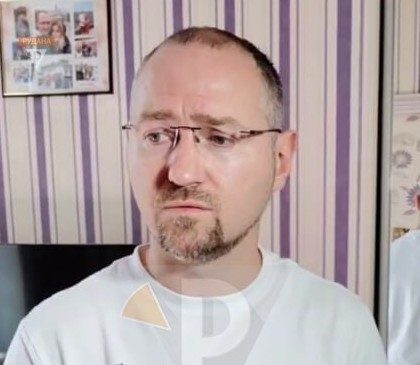
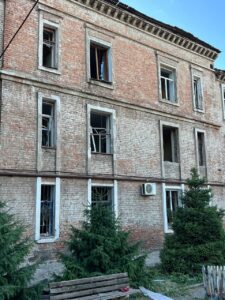
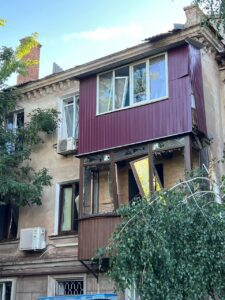
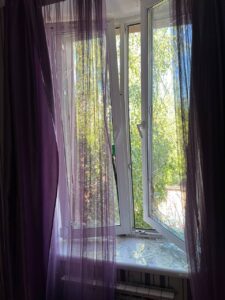
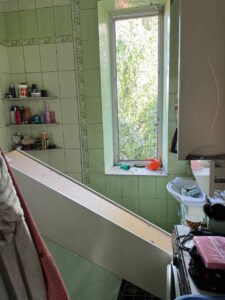
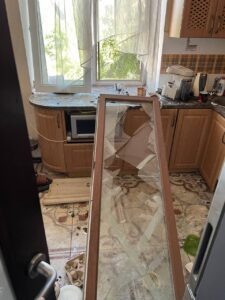
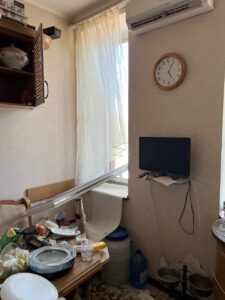
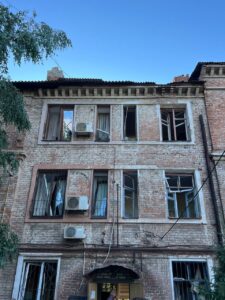
















Discussion about this post